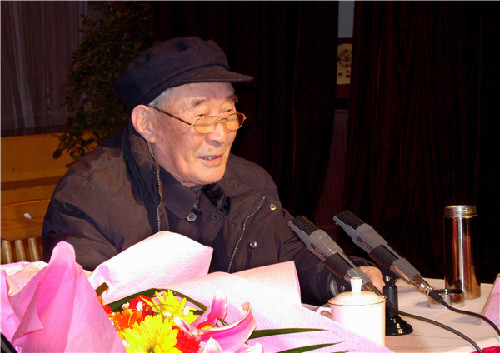
 |
|
Red Army veteran Li Guang visits schools and gives lectures to tell young people his stories of the Long March. [Photo provided to China Daily] |
In January 1935, when a faction of the Red Army arrived in Zunyi after crossing the Wujiang River, as part of the Long March, Li waited for the Communist soldiers. In a bid to get people to vacate the now prefecture-level town, the nationalist Kuomintang forces spread the rumor that Red Army members "ate human flesh".
Li wanted to find out if the rumor was true.
Instead, he saw the Communist soldiers helping the elderly people, looking after the sick and giving their own rations to the area's starving people.
The Communist Party of China hosted one of its most important meetings in history in Zunyi on Jan 15, 1935, when New China's founding father Mao Zedong was elected leader of the CPC.
It was around the time that Li went to a Red Army soldier and volunteered to join them.
As a child he never had the chance to study and knew limited Chinese characters, which led to a mistake in a battle later.
As a battalion commander, Li received a written order from higher officers that he and his troops "should evacuate before daybreak".
He didn't understand the word "daybreak" and his assistant was not around to help. The next day, when Li gathered his army and decided to leave in broad daylight, it was too late. They were captured by the Kuomintang and a lot of people died.
Since then, he has always emphasized the importance of education.
Now 95, Li still recalls the hard years he spent with the Red Army in snowy mountains and marshy grasslands where they ate little food and wore handmade clothes.
"We spent five days walking along the Jinsha River to the Luding Bridge, eating only one meal. For that meal, before we cooked the food thoroughly, we needed to fight the enemy. So we put the food in our hats, running while eating the half-cooked food," he recalls.